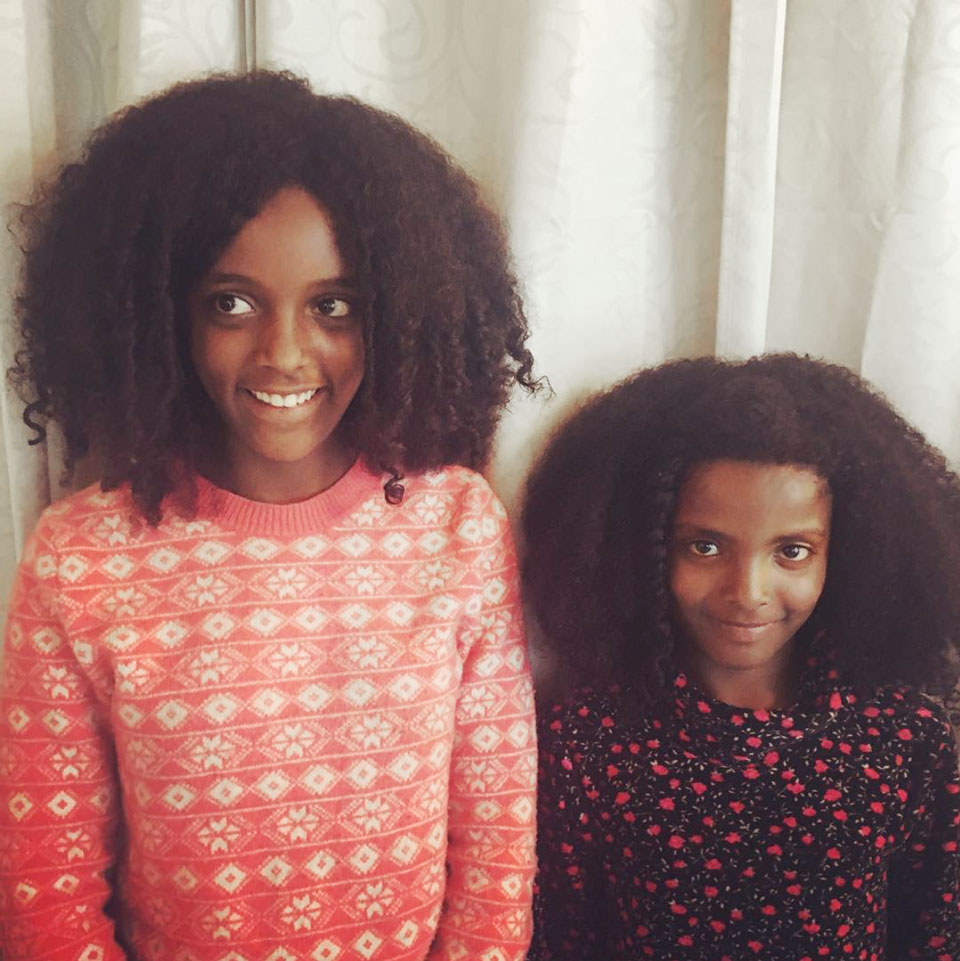
Jessica Kerwin Jenkins traded a journalist’s life in New York City for the quiet of small-town Maine. Where she is raising two African-American girls. Here, the author of Encyclopedia of the Exquisite and All the Time in the World opens up about the internal struggle that led to that decision.
In Maine, simply put, our family stands out. My daughters, Vivi, who is just about to turn 12, and Tsega, who is eight, are two of the very few people of African descent living in our tiny town on the coast, and my husband and I are of European descent. When we aren’t at our local farmer’s market, or the town park, where everyone knows just about everyone, spending time in rural New England can feel a bit like what a friend describes as “living behind the glass wall,” that strange sensation that you’re somehow separate from everyone else, an object of curiosity and usually some vague sympathy. It’s the isolation that comes through perceived difference. On the surface, we are different, but in every other way, mostly not.
And yet, I still feel down to my mama core, that small-town Maine is the place for us. There are adoption experts who would disagree, who might suggest raising them in more cosmopolitan Portland instead, who would prioritize the kids’ need to see themselves reflected more clearly and frequently in the faces around them. And I understand their point. But what we lose here in diversity — which we strive to recoup during every school break — we gain in freedom.
You know those brief encounters that change your life? Once, down on our little beach one gloriously sunny summer afternoon, when visitors surge into Maine from all over, two beautiful brown-skinned mermaids emerged from the waves. To my kids, six and nine at the time, these glorious young women were that stunning. The upswept braids. The earrings. The daring swimsuits. But, more than that, much to my girls’ delight, these young goddesses then strolled right over to say hello. They were sisters, too, and confident, funny, so bright and generous. They seemed to glow, especially when they invited my girls into the water to play. Soon, their mother, also a woman of European descent, came over, and our brief meeting had that magical quality that ignites intuition and makes you pay attention to every word. She told me about her daughters, one of whom was just finishing her masters at the University of Chicago with a dissertation on women of the African diaspora. She told me about raising them, homeschooling in rural Pennsylvania, so that they could “have the opportunity to decide who they are, before the world tells them who they are.” That was exactly what I needed to hear. And then they were gone.
We’ve always been a low media household. Our kids go to a Waldorf school, which recommends very limited media exposure and only on weekends, if it can’t be helped. My girls have seen only a handful of films, nature videos, mostly, when stuck in bed with a fever. But beyond my general concerns about screen time, these days, I want my children to come into their own — without the need to conform to a template of whom they should be. In shielding them from stereotypes and their pressures, we have landed here in the wilds as they grow.
It’s a choice. And as every mother knows, there’s no right answer. In the meantime, our girls breathe the clean sea air and they climb trees. They grow vegetables in the garden. They sew their own doll clothes and swim butterfly. They know bird calls and fox tracks, the names of the big constellations, the wildflowers out in our fields and their uses in traditional medicine. Vivi can saddle a horse and sail her tiny sailboat way out to the mouth of the harbor all on her own. And when my daughters move through their days, they are seen exactly as themselves — almost everyone in town knows their names and who they are, and they have the chance to be appreciated for exactly that.
My daughters may not have an African-American pediatrician or classroom teacher, and I have to drive them two-and-a-half hours each way to have their hair trimmed by an amazing Nigeria-born healer and hairstylist, or down to Portland to visit our favorite Ethiopian restaurant, where the owners kiss the girls’ cheeks. But here I hope we can give them an opportunity to find themselves, to establish a resilience and confidence all their own, without interference from a world that doesn’t yet know how to respect and nurture its children of brown skin. Whenever I doubt our unusual choice — because I do — I think about raising mermaids: self-assured, magical and bright as those I’ve had the good fortune to meet. —Jessica Kerwin Jenkins
